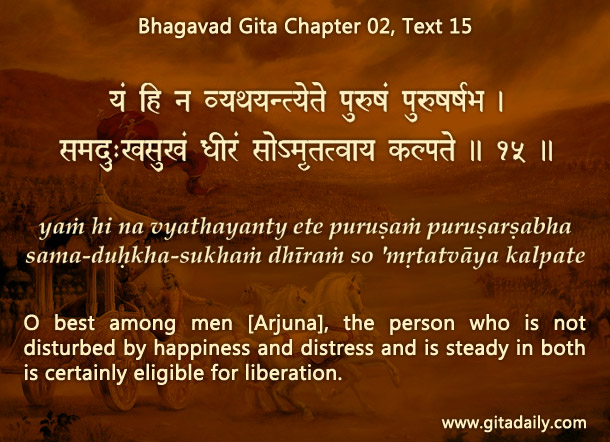Suppose a dream project of ours fails irrecoverably. Having no other alternatives, we may grit our teeth and struggle to let go of it, by reminding ourselves of sayings such as: “What can’t be cured has to be endured.”
These sayings help by intellectually reminding us of our powerlessness. Yet such resigning ourselves to the unchangeable doesn’t seem positive or purposeful. Can we see our predicament more affirmatively? Yes, by seeing it as an opportunity to redefine what is valuable for us.
For such re-evaluation, we can ask ourselves: “Why did this project mean so much to me?” The answer might seem self-evident: “It would have made my career more secure.” Without denying the validity of such answers, we can probe further and may discover a deeper answer: “I want to be respected in my social circle.” If we keep going deeper, we may realize that many of our earlier answers, while valid in their own way, are not all that important for us. They are society’s definitions of what is valuable, definitions that we have uncritically accepted. Through our inner exploration, we may find some other things that truly matter for us, and the road to those things may still be open.
Helping us in inner re-assessment, Gita wisdom explains that life’s most valuable thing is our spiritual evolution. By such evolution, we become better human beings, more resilient individuals, wiser seekers in life’s journey. When we gracefully accept the world’s binaries, we progress steadily toward lasting fulfillment (Bhagavad-gita 02.15).
Thus, by spiritual discovery, we can let go of the unchangeable more positively, leaving what we had thought was valuable for pursuing what is much more valuable.
One-sentence summary:
Letting go doesn’t have to center on resigning to what is unchangeable; it can center on redefining what is valuable.
Think it over:
- How do sayings about accepting the unchangeable help and don’t help?
- How can we see letting go more positively?
- Are you struggling to let go of something? How can you use that situation for inner re-evaluation?
***
02.15: O best among men [Arjuna], the person who is not disturbed by happiness and distress and is steady in both is certainly eligible for liberation.
To know more about this verse, please click on the image
Explanation of article:
Podcast:
Download by “right-click and save”
sftp://thespiritual@gitadaily.com/home/thespiritual/public_html/audio/


Leave A Comment